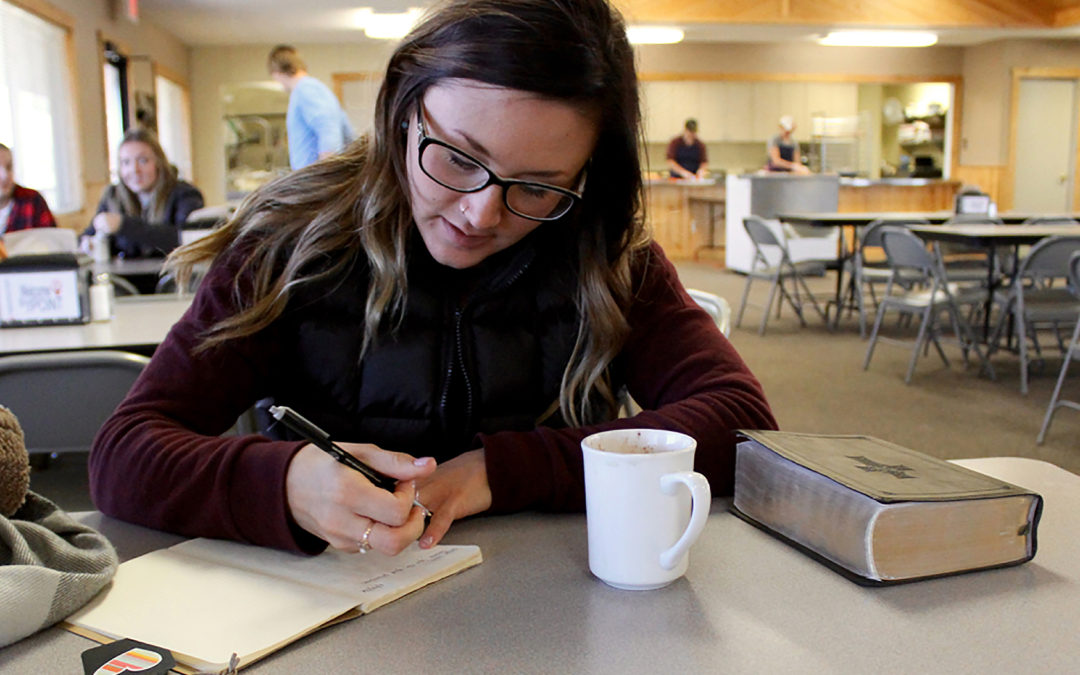Just who are you? How do you identify yourself? How do you complete this sentence? “I am ……”
You might answer it in terms of your family and give your name. You might answer in terms of what you do and give your vocation. There are many ways by which we identify ourselves and these in part determine how we answer the identity question and define for ourselves and for others who we are. We can speak in terms of our gender, family, race, culture, religion, age, appearance, abilities, accomplishments, personality, possessions, what we do, where we live, relationships, and even who we know.
Some of the answers are from a psychological perspective while others are more sociological in nature. These are all factors that do have a part in making up our identity. However, they fall short of providing for us the ultimate basis of who we are.
How does the Bible speak to the identity question?
The Bible tells us that “God created humankind in his own image, in the image of God he created them; male and female he created them” (Genesis 1:27). The human person is given the identity of having been made in the image of God. The psalmist also speaks to this from the perspective of God’s creation work: “For you created my inmost being; you knit me together in my mother’s womb. I praise you because I am fearfully and wonderfully made; your works are wonderful, I know that full well. My frame was not hidden from you when I was made in the secret place, when I was woven together in the depths of the earth. Your eyes saw my unformed body; all the days ordained for me were written in your book before one of them came to be. How precious to me are your thoughts, God! How vast is the sum of them! Were I to count them, they would outnumber the grains of sand—when I awake, I am still with you” (Psalm 139:13-18).
We are to understand ourselves as personally made and fashioned by God.
The Bible teaches us that our true identity is also found in relation to Jesus Christ. Our identity is not ultimately determined by the “world’s point of view” (2 Corinthians 5:16). For the believer in Christ there is another reality that determines our identity. Through faith in Christ, we are a new creation (2 Corinthians 5:17). In Christ we have been qualified “to share in the inheritance of his holy people. For he has rescued us from the dominion of darkness and brought us into the kingdom of the Son he loves, in whom we have redemption, the forgiveness of sins” (Colossians 1:12-14). In Christ we have an identity that has brought us to fullness—that is complete, not lacking anything. There is no need to look to another source for our identity. In Christ we have the identity of being righteous. This is not a righteousness that we have produced by our performance, but the righteousness of Jesus Christ which is given as a gift “from God on the basis of faith” (Philippians 3:9). In Christ we have his righteousness.
We can complete that “I am…” statement with the word “righteous,” for that is who and what we are in Christ.
When the Apostle Peter writes to believers living in a hostile environment, he identifies them as God’s elect, while at the same time recognizing that in terms of their social identity they are scattered exiles. But what ultimately defines them is that they are God’s elect “who have been chosen according to the foreknowledge of God the Father” (1 Peter 1:2).
To know oneself to be chosen by God establishes an identity that is foundational. As persons, we have the need to belong. We were created to belong. It is of first-order to belong to the one who created us. Peter expands on this by defining them as “a chosen people, a royal priesthood, a holy nation, God’s special possession, that you may declare the praises of him who called you out of darkness into his wonderful light. Once you were not a people, but now you are the people of God; once you had not received mercy, but now you have received mercy” (1 Peter 2:9-10).
The identity that Peter establishes for the first readers of his letter is also the identity for all believers in Christ. As a believer in Christ you are chosen, a royal priest, God’s special possession. The significance of such an identity is life-strengthening. Having come into this identity through the gift of a new birth, we have a hope that is alive. It is so alive that it breathes the resurrection life of the risen Christ. Coming with this identity is an inheritance that transcends the decaying possessions of this world. Such an inheritance is reserved for you! In this identity there is protection for the believer who is guarded by the very power of God “until the coming of the salvation that is ready to be revealed in the last time” (1 Peter 1:5). Such an identity causes the believer to burst forth with rejoicing even while going through grief and all kinds of trials (1 Peter 1:6). John, writing to believers in his letter, says to them, “See what great love the Father has lavished on us, that we should be called children of God! And that is what we are!” (1 John 3:1). To be defined as a child of God is to have the identity that we were created for.
When our “I am…” sentence is completed with the Lord’s words by which he defines who we are in Christ, we possess and are confessing an identity that is anchored in God’s truth. It is an identity that gives meaning, significance and purpose.
Dr. Eugene Boe is the Academic Dean and Professor of Systematic and Historical Theology at Lutheran Brethren Seminary.

